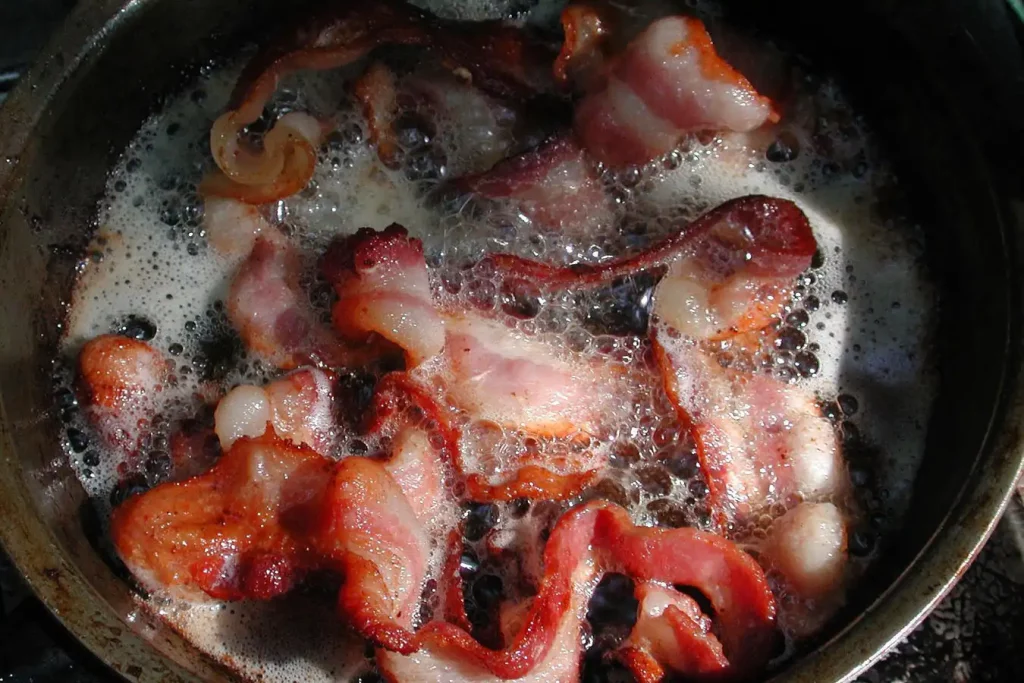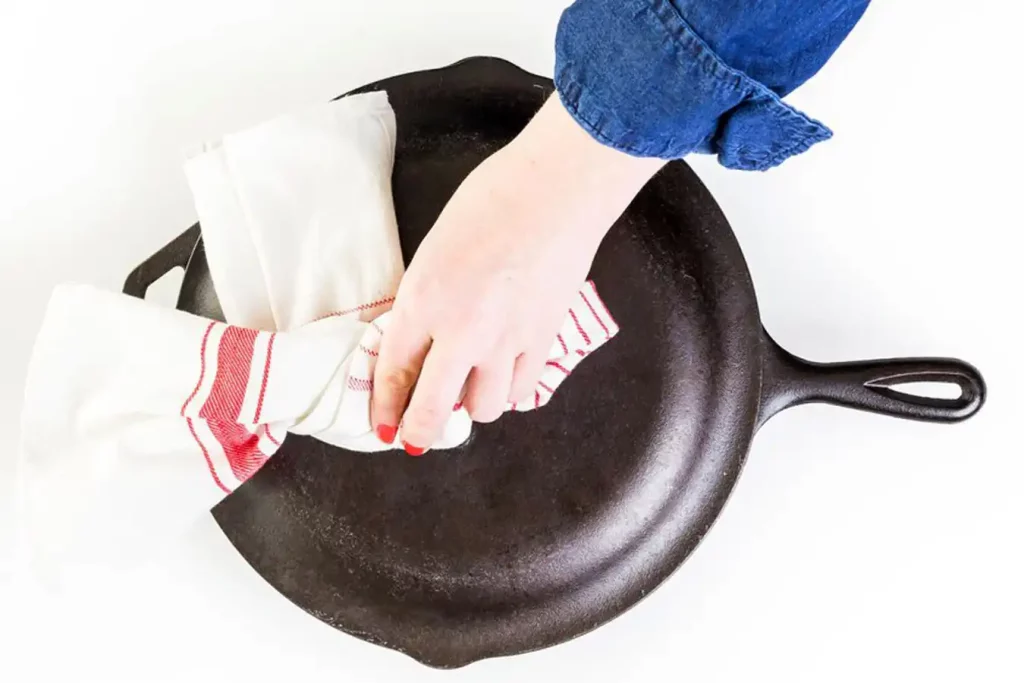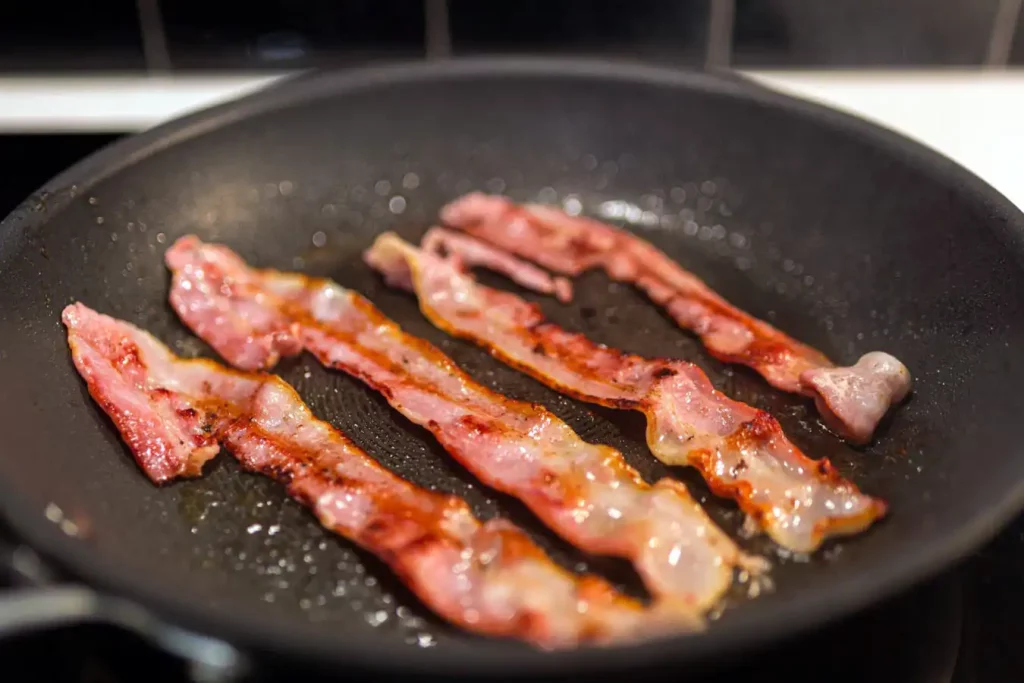Wondering how to clean a cast iron skillet after cooking bacon?
You're in the right place!
This article is dedicated to helping you unravel the secrets of properly caring for your cherished cast iron skillet post-bacon fry-up.
With easy-to-follow, tried and tested methods, you'll be able to keep your skillet in pristine condition for many more mouth-watering meals.
Join me, as I share my practical experiences from countless outdoor cooking adventures.
Get ready, because after reading this, your skillet will be gleaming and ready for your next culinary expedition!
Understanding the Cast Iron Skillet
Let's begin with a basic understanding of cast iron skillets. They're prized for their unique properties and are a preferred choice for many chefs and home cooks alike. Cast iron heats evenly, retains temperature superbly, and is incredibly durable. Properly cared for, it can be passed down generations!
Why Care for Your Cast Iron Skillet?
So, why does your cast-iron skillet need special attention? Cast iron is a unique material. It's tough yet somewhat porous, and it can rust if not properly cared for. Moreover, a well-seasoned cast-iron skillet has a natural nonstick coating that improves with proper maintenance. On the contrary, improper cleaning can cause damage, affecting its longevity and cooking efficiency.
What Happens When You Cook Bacon on a Cast Iron Skillet?
Bacon, while mouth-wateringly delicious, leaves behind a significant amount of grease. If not cleaned correctly, this grease residue can create a layer of buildup on your skillet, altering the flavor of other foods cooked in it. In some cases, it might even lead to a greasy, sticky mess that's hard to clean and spoils the skillet's seasoning.

But fear not, friends! Let's dive into the step-by-step guide to cleaning your cast-iron skillet after cooking bacon, preserving its nonstick surface, and ensuring it continues to serve you well for years to come.
Stay tuned for the following section, where we'll learn about the right tools for cleaning and the proper technique to clean your skillet effectively. Remember, understanding and taking care of your tools is half the battle won in creating delicious meals!
Read more: How to Make Steak in a Cast Iron Skillet
Necessary Supplies for Cleaning a Cast Iron Skillet
Before we dive into the step-by-step guide, let's make sure we have all the necessary supplies on hand. Here's what you'll need:
- Mild dish soap: Gentle on your skillet's seasoning, yet effective enough to cut through the grease.
- Non-metal scrub brush or sponge: To gently scrub away stuck-on food particles without scratching the surface.
- Dishcloth or paper towels: For drying the skillet after washing.
- Cooking oil: To re-season your skillet after cleaning.
Each of these items plays a crucial role in ensuring your cast iron skillet remains in top shape. So, let's get cleaning!
Read next: How Long to Cook Turkey Burgers in Cast Iron Skillet
Step-by-step Guide to Clean a Cast Iron Skillet After Cooking Bacon
Cleaning a cast iron skillet might seem daunting, but fear not! Here's a step-by-step guide to help you through it.
Step 1: Let the Skillet Cool Down
Don't rush to clean your skillet immediately after cooking. Let it cool down a bit – sudden temperature changes can damage cast iron. Plus, you'll avoid burning your hands!
Step 2: Remove Excess Grease and Leftover Bits
Once the skillet is cool to touch, pour out the excess bacon grease into a disposable container for later disposal. Never pour it down the drain! Then, wipe out any remaining grease and leftover bits using a paper towel.
Step 3: Clean the Skillet with Soap and Warm Water
Next, add a few drops of mild dish soap to your skillet and fill it with warm water. This step helps to lift any stubborn bits and cut through the grease without damaging your skillet's seasoning.
Step 4: Scrub the Skillet
Using a non-metal scrub brush or sponge, gently scrub your skillet. Be sure to clean the interior, handle, and bottom. Remember, the goal is to remove food residues without scrubbing away the skillet's seasoning.
Step 5: Rinse and Dry Thoroughly
After scrubbing, rinse your skillet thoroughly under warm water. Then, dry it immediately and thoroughly with a dishcloth or paper towel to prevent rusting. You can also place it on the stove over low heat to ensure it's completely dry.
Step 6: Re-season the Skillet
Finally, apply a thin layer of cooking oil to the entire skillet using a paper towel, ensuring it's evenly coated. This step helps maintain its non-stick properties and prevents rusting.

You've successfully cleaned your cast iron skillet after cooking bacon. By following these steps, you'll extend the lifespan of your skillet, maintaining its quality for many more bacon-filled breakfasts to come!
To know more: Clean Bacon Grease from Cast Iron Cookware
Tips to Maintain Your Cast Iron Skillet
Beyond proper cleaning, a few additional tips can enhance your cast-iron skillet's lifespan:
- Always heat your skillet gradually to avoid thermal shock and potential cracking.
- When cooking acidic foods, such as tomatoes or citrus, limit the cooking time or use an enameled cast-iron skillet to avoid damaging the seasoning.
- Store your skillet in a dry place to prevent rusting. If stacking with other pans, consider placing a paper towel inside to absorb any moisture.
- Regularly season your skillet. Over time, the seasoning can wear off, especially if you often cook acidic foods or scrub too vigorously. Regular seasoning helps maintain the non-stick surface.
By adopting these tips, your cast-iron skillet will remain a beloved staple in your kitchen for generations!
FAQs about Clean a Cast Iron Skillet After Cooking Bacon
Do you wash cast iron after cooking bacon?
Can you leave bacon grease in a cast iron skillet?
How do you clean a cast iron pan after cooking it?
Why does bacon stick to cast iron?
Conclusion
Cleaning a cast-iron skillet after cooking bacon may seem like a daunting task, but as we've seen, it's quite straightforward! From allowing the skillet to cool down, removing the excess grease and food particles, to cleaning with soap and warm water, scrubbing, rinsing, drying, and finally, re-seasoning – each step is integral to maintaining the skillet's durability and performance.
I encourage you to keep using your cast iron skillet, experiment with different dishes, and most importantly, take care of it. The more you cook with it and care for it, the better it performs, and the more flavorful your meals become.
Remember, your cast-iron skillet isn't just a cooking tool; it's a legacy in your kitchen. Treat it well, and it will serve you delicious meals for years to come. Happy cooking!
Know more: How to Cook Biscuits in a Cast Iron Skillet


